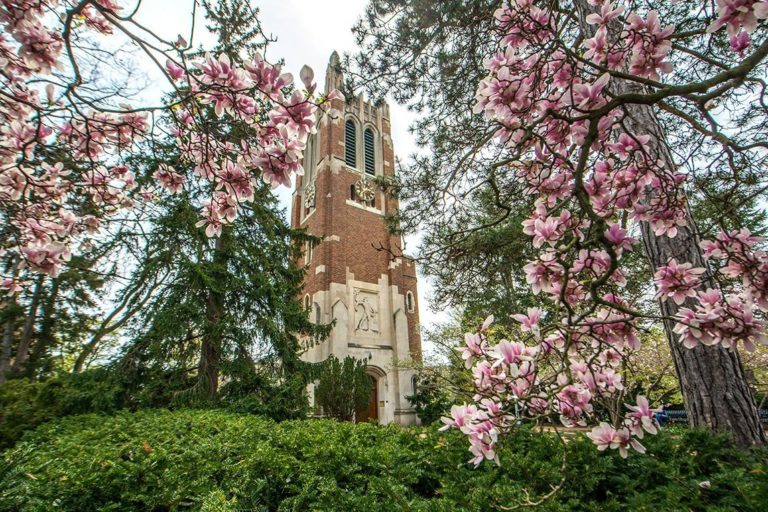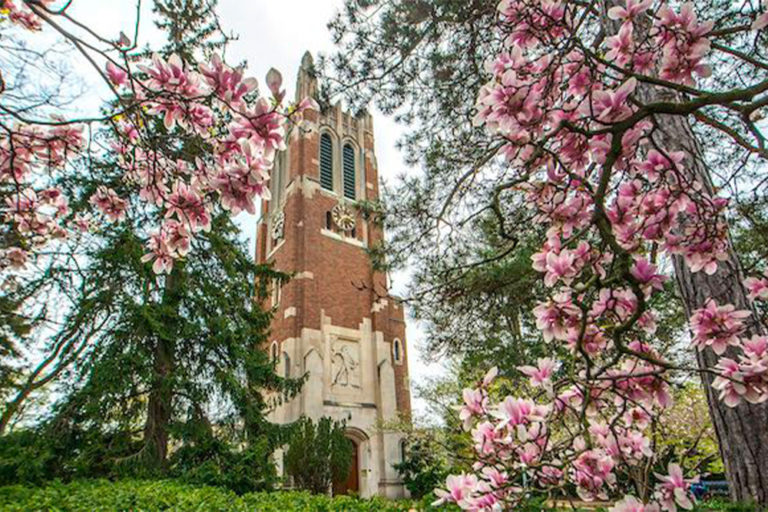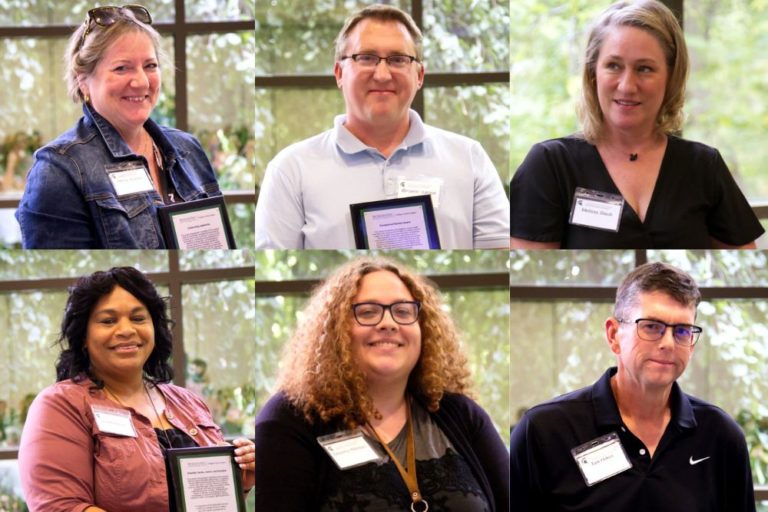Elias Young, a junior Japanese major at Michigan State University, is applying his language skills and interest in LGBTQ+ culture on an undergraduate research project where he plans to create an open-access database outlying how queer spaces, events, and culture intersect with mainstream Japanese culture.
This summer, he will travel to Japan, with support from an Undergraduate Research Initiative grant from MSU’s College of Arts & Letters, where he will visit Tokyo’s gay district, Shinjuku Ni-chome, and other cities like Kyoto and Osaka to gain a sense of the culture there. He also plans to spend time combing through local archives to access information that is not widely available abroad, and he hopes to conduct interviews and do some larger-scale ethnographic research, such as observing private events and queer spaces.
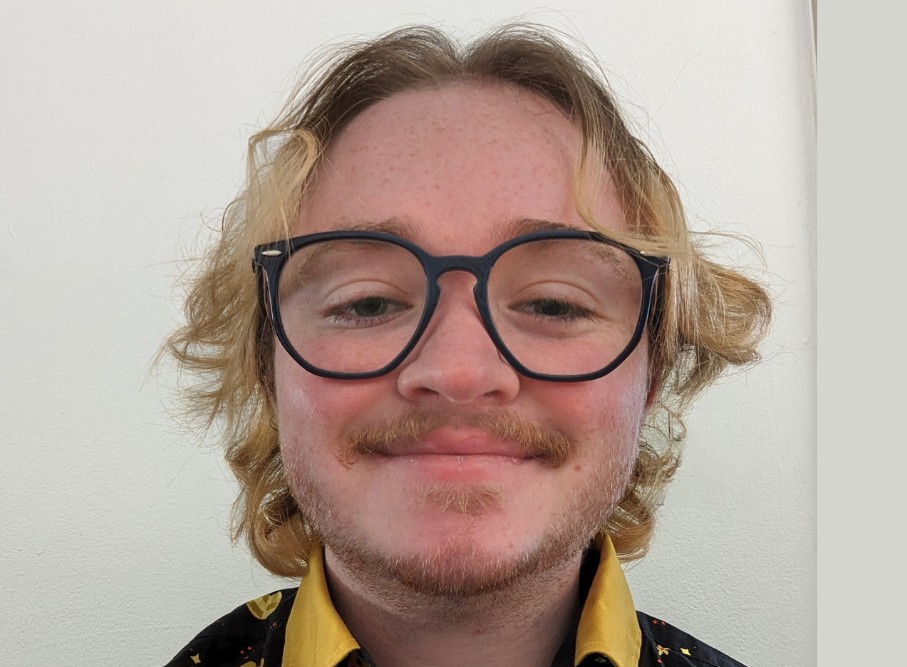
Japan has an intricate relationship and long history with queer culture. While gay marriage is not federally legal, many cities and municipalities offer marriage certificates, making queerness one of the larger political movements in the country.
“Japan has a culture of respect and keeping to yourself,” Young said. “So, in that way, queer people in Japan have turned less toward outward self-expression, like you see in the U.S., and more toward internal and artistic expression. There is no lack of queer manga or writings or that sort of thing, but there are not a lot of explicitly queer spaces or queer icons. There are a few, but it is not as out of a society as the U.S.”
“What I’ve noticed so far is that queerness in Japan is a lot more nuanced than we would like to view it in the U.S. and that is because there is not a focus on individualism overall, in the ways that queerness as a concept presents itself.”
Young’s project is still in its early stages, as he plans on doing much of the research abroad. Currently, he is researching Japanese queer fiction and doing some linguistic mapping, trying to figure out the origins and meaning of slang terms beyond their dictionary definitions. His research dives into the impacts that “quiet acceptance” has on queer literature, art, and culture and how these factors influence Japan’s visible queerness and queer spaces, which are mostly found in large cities like Kyoto and Tokyo. Additionally, Young discovered that a lot of Japan’s visible queerness only applies to gay men, which he says is unfortunate.
“What I’ve noticed so far is that queerness in Japan is a lot more nuanced than we would like to view it in the U.S. and that is because there is not a focus on individualism overall, in the ways that queerness as a concept presents itself. It lends itself more towards actions than identity, which, in turn, makes the basis of my research kind of hard,” Young said. “However, there is not a lack of queer people, but I’d say there is a lack of seeing those people in the same way that we can see them in the U.S.”
Language Learning Strengthened Through Research
Young says that researching how these two interests intersect has helped strengthen his Japanese language skills and his relationship with his professors, and allowed him to engage more deeply with Japanese culture.
“I’ve always been a little bit interested, partially because I was already interested in Japanese culture and I am queer myself, but I wanted to know more,” Young said. “And I realized that there wasn’t exactly a lack of study on it, but there isn’t a robust consensus on history or current queer culture like you would find in the U.S.”
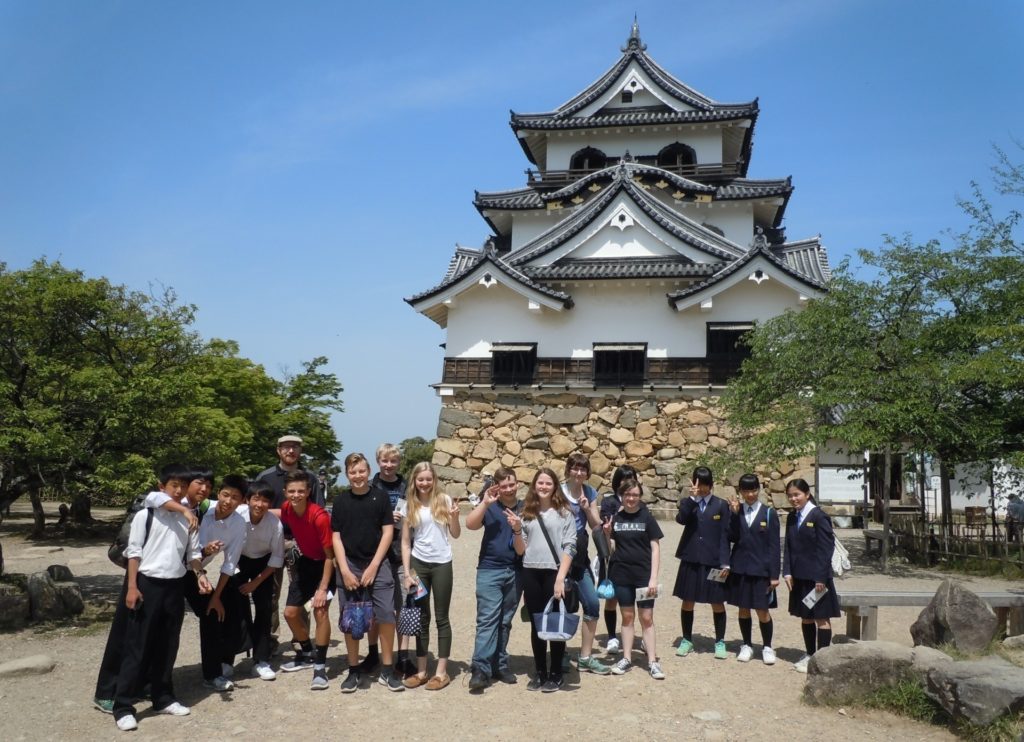
Young has started collecting information for this project by reading personal memoirs, poems, literature, manga, government policies, and historical documents, all in Japanese.
“I am only a 200 level, so there are some things that go a bit over my head,” he said. “But I’m at the point where I can recognize enough to realize connotations and then take it back to my professor and ask questions.”
Prior to doing his research in Japan this summer, Young will be part of a nine-week study abroad program with the Japan Center for Michigan Universities in Hikone, Japan, where he will do intensive Japanese language studies, which will fulfill his 300-level language requirement. The program provides housing, but Young hopes to do a homestay in order to be more immersed in the Japanese culture.
First Trip to Japan Sparks Lifelong Interest
This won’t be Young’s first time traveling to Japan. In middle school, he was part of an exchange program through his neighboring community of Adrian, Michigan, and its Japanese sister city of Moriyama, which is located in Shiga Prefecture between Kyoto and Tokyo.
This program gave six eighth-grade students the opportunity to host a Japanese student in their home in the fall, and then in the spring, they were hosted by that student’s family in Japan. And before traveling to Japan, the students learned basic phrases.
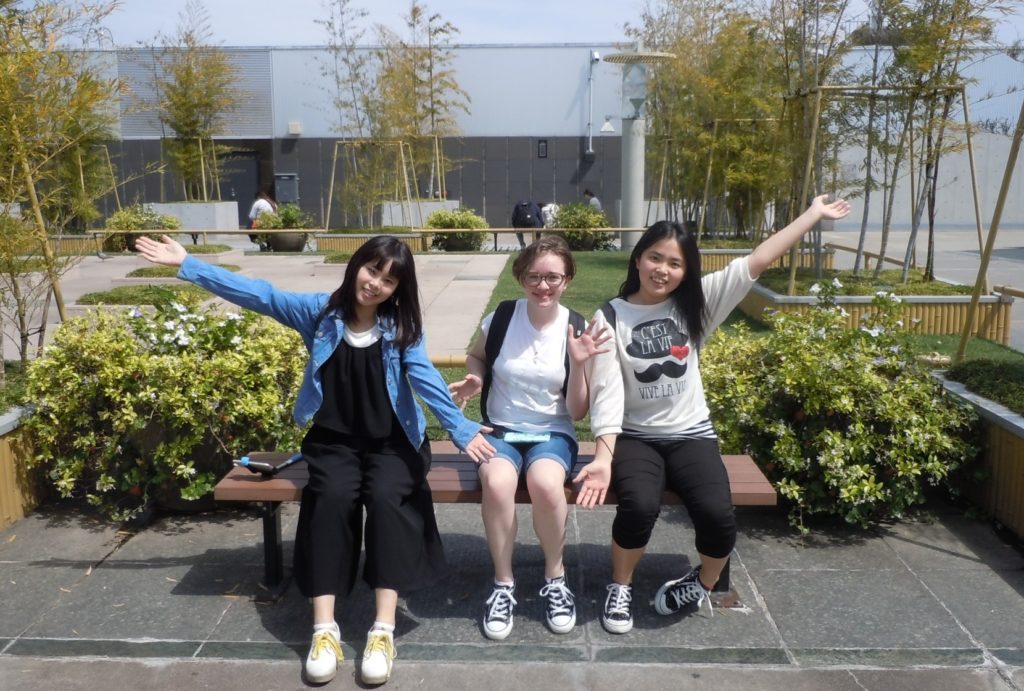
“I was just astounded by the culture, and I wanted to learn more,” Young said. “I became good friends with my host sister, Shiho, and her older sister, Mitsuki. We still keep in touch because she has been studying English and we like to practice our languages with each other. And so that’s been really nice.”
With minors in Global Studies and Humanities and Arabic, Young first became interested in language learning from his father, who served as an Arabic interpreter for the military in the early 1990s. Young decided to learn Arabic himself in order to communicate better with the clients at the Lansing Refugee Development Center, where he is an intern.
“Learning a language is great for cognitive development, and it really helps you with your sense of empathy for others to have the same experience that a lot of people in the world have of learning another language.”
“Learning a language is great for cognitive development, and it really helps you with your sense of empathy for others to have the same experience that a lot of people in the world have of learning another language,” Young said. “It gives you another perspective to look through, and it’s never harmful to know more about the world you live in.”
Young hopes to complete and present his research at MSU’s University Undergraduate Research Forum (UURAF) later next year. But first, he is looking forward to his summer abroad in Japan.
“I am so excited to go back and revisit a place that I’ve really loved before,” he said. “And I am really excited to go to Tokyo because I didn’t get the opportunity to go when I was there before, and as the capital, it’s huge, it’s got everything. It’s such an exciting thing even to consider because there are endless opportunities, so even thinking about that opportunity is exciting.”
